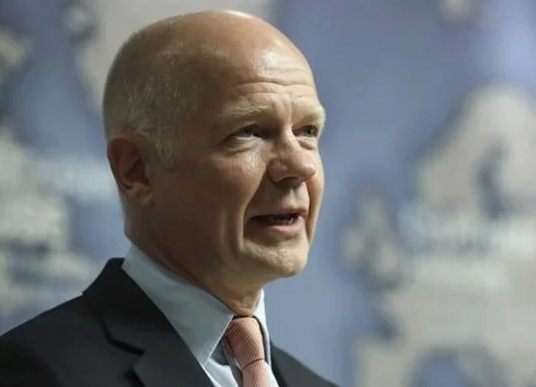
William Hague, former leader of the Conservative Party and Foreign Secretary of the United Kingdom, has been elected as the new Chancellor of Oxford University. This prestigious position, held for life, solidifies Hague’s role in the academic and cultural life of one of the world’s leading universities.
A Distinguished Career
Hague’s election as Chancellor reflects his distinguished career in public service and his longstanding relationship with academia. Key highlights of his career include:
- Political Leadership: Hague served as the leader of the Conservative Party from 1997 to 2001 and as Foreign Secretary from 2010 to 2014, where he played a pivotal role in shaping the UK’s international relations.
- Academic Roots: A graduate of Magdalen College, Oxford, Hague earned first-class honors in Philosophy, Politics, and Economics (PPE). During his time at Oxford, he was the president of the Oxford Union, showcasing his debating prowess and leadership skills.
The Role of Chancellor
As Chancellor, Hague will serve as the ceremonial head of Oxford University, a position traditionally focused on promoting the university’s values and enhancing its global reputation. The role includes:
- Presiding over ceremonial occasions such as degree ceremonies.
- Representing the university at major events and fostering relationships with alumni and donors.
- Acting as an ambassador for Oxford’s mission of excellence in education and research.
Election and Support
Hague was elected by members of Oxford’s Convocation, which includes all graduates of the university. His election follows the tenure of former Chancellor Lord Patten of Barnes, who held the position since 2003.
In his acceptance statement, Hague expressed his gratitude and commitment to supporting Oxford’s academic community, stating, “It is an honor to return to the university that shaped so much of my life and career. I look forward to contributing to its continued success and global influence.”
Challenges and Opportunities
Hague’s tenure as Chancellor comes at a time of both challenges and opportunities for Oxford:
- Global Competition: As one of the world’s top universities, Oxford faces intense competition from institutions in the U.S. and Asia. Hague’s international experience may help bolster Oxford’s global standing.
- Access and Inclusion: Hague is expected to advocate for initiatives that improve access to Oxford for students from diverse backgrounds.
- Research and Innovation: Supporting Oxford’s role as a leader in research, particularly in areas like climate change and medical science, will likely be a priority.
Public and Academic Reactions
Hague’s election has been met with a mix of optimism and scrutiny:
- Supporters highlight his leadership skills, intellectual background, and global perspective as assets to Oxford.
- Critics point to his political affiliations and question how they align with the university’s values of inclusivity and academic freedom.
Conclusion
William Hague’s election as Oxford’s new Chancellor marks a significant moment in the university’s history. With his blend of political acumen and academic roots, he is poised to lead Oxford into a new era of innovation, inclusion, and global leadership. As he takes on this lifelong role, the Oxford community and the world will watch closely to see how Hague shapes the legacy of one of the oldest and most prestigious universities.
4o
